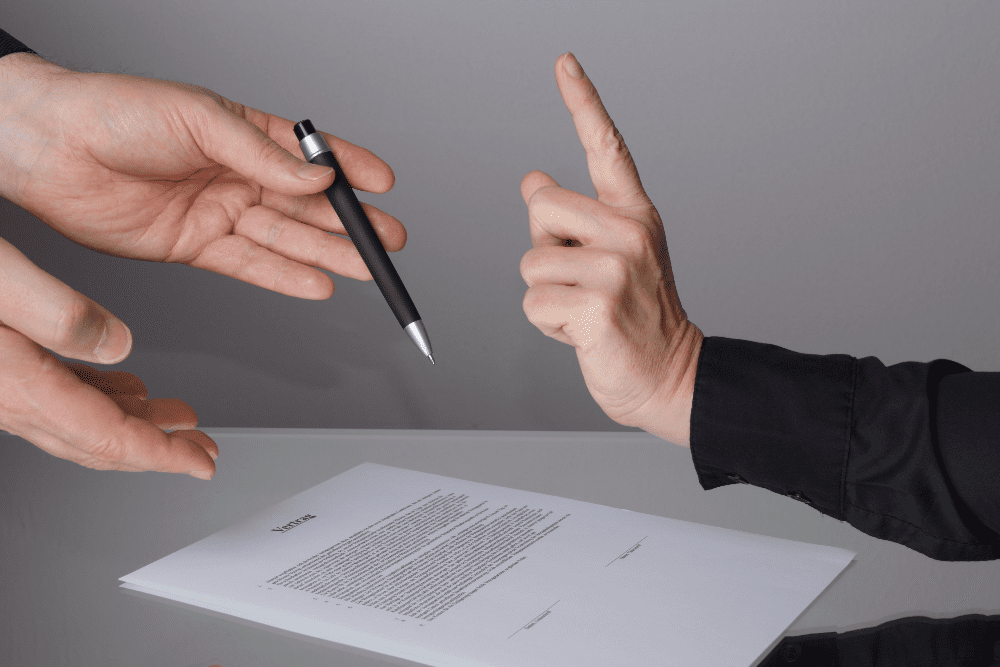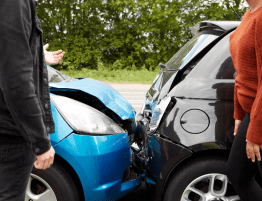
After a car accident, your life is often even more complicated and stressful because of the added issues of injuries, necessary medical treatment, car repairs, and the trauma of the event itself. Those injured in a motor vehicle collision also fear potentially losing their careers and homes if they were severely hurt. Sadly, our financial obligations don’t stop despite these circumstances, so when a settlement check or offer finally comes from the insurance company, it’s tempting to take it and try to move on.
Accepting the first compensation offer could be the worst mistake you ever make and leave you in a worse medical, financial, and emotional position in the long run. Before you decide on the offer dangling in front of you, you should consider some of the information in this article and speak with a qualified personal injury attorney first.
Why You Should Say No to the First Settlement Offer
It is common practice for insurance companies to make low valuations of damages and injuries suffered by accident victims. They are a business and have a bottom line to protect; otherwise, these corporations would not profit from their policies. Whether it is your insurer you are working with or that of the at-fault party, the adjusters working for them are not truly looking out for your best interests.
Often, these first settlement proposals won’t include:
- Medical care and hospitalization costs;
- Lost wages or affected capacity to work;
- Specialist and surgical treatments;
- Physical therapy;
- Long-term care; or
- Pain and suffering.
If you receive an initial compensation offer or randomly get a check in the mail, it likely only covers the smallest portion of your damage. Often, medical problems related to your accident may not appear for weeks after the initial collision. The moment you take that payment and sign a release, you have given up your ability to pursue compensation for additional care if complications should arise.
Understanding the Difference Between Punitive and Compensatory Damages
When evaluating whether the insurer’s initial offer is fair, you should clearly understand the types of damages you may qualify to pursue. In Florida, there are typically two types of damages your case could request: punitive and compensatory damages.
What Are Compensatory Damages?
Compensatory damages cover both economic and non-economic losses a personal injury victim suffers. Economic damages handle the monetary losses you have endured as a result of the accident. These are not too complicated to calculate since the total is tallied up using receipts and estimates.
Economic compensatory damages include:
- Medical treatment;
- Income loss; and
- Property loss.
Non-economic damages are highly subjective but are crucial to your compensation demand. These usually require supporting evidence to get calculated accurately. Initial settlement offers seldom consider these genuine losses that you would experience after surviving a car accident.
Non-economic compensatory damages include:
- Emotional distress;
- Loss of consortium;
- Pain and suffering; and
- Loss of quality of life.
Both categories of damages are necessary to help claimants get back money spent or lost because of the accident. You can almost be sure that any check or offer made to you initially does not reflect a fair determination of these damages.
Punitive Damages
If the at-fault party committed gross negligence or reckless misconduct, punitive damages might be appropriate for your case. If you take a settlement offer, you will be unable to pursue this type of compensation.
In Florida, not only are punitive damages rarely awarded, but there is a cap on the amount you could receive. You will have to take your case through the trial process and ask a jury to find in favor of your claim. If they do, the maximum in punitive damages they could award is the greater of the two below:
- Three times the amount of your awarded compensatory damages; or
- $500,000.
If you were in a car accident that might qualify for punitive damages, for example, a DUI accident, it’s worth consulting with a highly-trained personal injury attorney to evaluate the possibility of pursuing punitive damages.
Contact a Skilled St. Petersburg Personal Injury Attorney About Your Settlement Offer
At Marsalisi Law, we know the financial and medical burdens you suffer after a car accident can make you feel insecure about your future. Receiving that initial offer may seem like your best choice because of the pressures you are under to make up for lost wages and the medical care costs you still have to pay. Before accepting any injury compensation from insurers, speak with personal injury Attorney Frank P. Marsalisi. He can provide you with sound advice and show you why the offer you received may or may not be fair for the damages and injuries you have suffered.
As a proud member of the Tampa Bay Trial Lawyers Association, Mr. Marsalisi has consistently succeeded in helping his clients get the personal injury results they deserve that truly meets the compensatory and punitive damages they need. Our firm is fluent in English and Spanish, allowing you to communicate your needs or questions and get them addressed. Contact our office online today or call (727) 800-5052 for a free case evaluation to learn what your rights are and how to proceed with your case.
Marsalisi Law Is Where Law Gets Personal!










